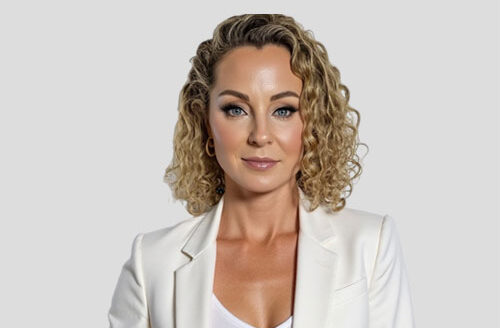about Platinum Prestige Group
Purpose-Driven Property Solutions With Measurable Social Impact
Elevating Real Estate with Trust, Integrity, and Prestige.
The PPG Difference
A women-led real estate agency bridging government housing priorities with private sector delivery, creating compliant solutions that transform communities.
Our Mission
Elevating Real Estate with Trust, Integrity, and Prestige.
At Platinum Prestige Group Real Estate, trust, integrity, and unparalleled ethics are the foundation of everything we do. Built from the ground up by Pushpa and Jordan, this company is more than just a business—it’s a dream turned reality, driven by passion, resilience, and an uncompromising commitment to excellence.
What started as a vision has become a powerhouse in luxury real estate, where every client is treated with the highest level of professionalism, discretion, and personalized service. From exclusive estates to high-value investments, we navigate each transaction with precision, ensuring that every deal is more than just a sale—it’s a step toward generational wealth and a legacy that lasts.
At Platinum Prestige Group, we don’t just close deals—we create elite experiences, set new standards of prestige, and make real estate aspirations a reality. This isn’t just business—it’s our legacy.
From Personal Challenge To Property With Purpose
Our Story
Platinum Prestige Group was born from founder Pushpa Vaghela’s lived experience with homelessness five years ago. Despite her 35+ years in property and psychology background, a business setback left her without housing, volunteering at a local church for food. This transformative experience grounds our approach in authentic understanding of housing insecurity. From those humble beginnings, Pushpa rebuilt her career and established PPG with a mission to address housing challenges through government partnerships, developer relationships and community connections. Today, we remain focused on creating housing pathways that deliver both compliance and care.

Our Purpose
Creating Housing That Changes Lives
Government Partner
We translate policy into practice, helping departments deliver housing targets with transparency, cultural awareness and measurable outcomes that address urgent community needs.
Developer Connector
We align developers with government priorities, streamlining relationships, reducing friction and creating pathways for private sector capabilities to meet public housing challenges effectively.
Community Builder
We foster inclusive housing solutions that reflect diverse needs, supporting multicultural communities, addressing homelessness and creating stable pathways to property ownership.
Legacy Creator
We build sustainable partnerships that deliver long-term social impact, establishing procurement-ready processes that create reliable, compliant housing outcomes for generations to come.

Social Impact
Housing As A Force For Good
Our work extends beyond property to address systemic challenges faced by vulnerable communities, with a portion of every transaction supporting initiatives that strengthen wellbeing statewide.
We support children with cancer through direct funding, with 10% of all donations channeled to pediatric cancer services. Our women’s mentoring programs help participants develop financial literacy and economic independence. Through multicultural community support, we reach diverse populations with specialized housing guidance in culturally appropriate contexts. As certified social traders, we embed measurable social value in every transaction, creating housing solutions that deliver both compliance and community benefit across Queensland.
Strategic Difference
Why Government Partners Choose PPG
Unlike traditional agencies focused on transaction volume, we bring specialised understanding of procurement frameworks, government priorities and social impact measurement to every housing engagement.
Our founder’s 17 years supporting government through the Mentor for Growth initiative provides unique insight into public sector processes and priorities. As a certified social enterprise, we deliver both property solutions and measurable community outcomes through every project. With experience across Defence Housing, National Housing Commission and local councils, we understand compliance requirements and stakeholder expectations at all levels of government. Our women-led, multicultural perspective ensures housing solutions reflect and serve diverse community needs with cultural awareness and genuine empathy.

Pushpa Vaghela
Meet our Leader
If you want the best care possible for your real estate needs, our certified professionals are here to help
Pushpa Vaghela: A Visionary in Real Estate & Leadership
With over 24 years of expertise in property management, residential, commercial, and leasing, Pushpa Vaghela is a renowned real estate leader and transformational mentor. Beyond real estate, she is a globally recognised speaker, author, and executive coach, specialising in leadership, entrepreneurship, and cultural change. As the founder of a Harm Prevention Charity, her impact extends to mental health and community advocacy. Whether guiding professionals to success or helping clients achieve their property goals, Pushpa delivers excellence at every step. Partner with her today and elevate your real estate journey.
Meet our team

Rachael Jackson

Michael Major
Michael Major is a highly experienced real estate professional with over 25 years in construction and sales across NSW and QLD. He has worked with leading developers such as Stargate Property Group, Morris Property Group, and Hutchinson Builders, as well as top real estate agencies including LJ Hooker, Richardson & Wrench, and Ray White, delivering exceptional results.

Nathan Boopathi
Nathan Boopathi, based in Doolandella, is your trusted real estate and mortgage finance expert serving Queensland and beyond. With 25+ years’ experience and a strong IT and banking background, he offers end-to-end support—from finding the right property to securing the best loan. Now with Platinum Prestige Group, Nathan delivers tailored solutions for first home buyers, investors, and multicultural communities.
Get In Touch
What our clients say about us
Our Client Reviews
Frequently Asked Questions
Please select the General, Buy, Sell, Rent or Manage button to view FAQs relating to each of these.
We aim to respond to all enquiries within 24 hours, but in most cases, you’ll receive a call on the same day.
The Registration Act, 1908, the Transfer of Property Act, 1882 and the Real Estate (Regulation and Development) Act, 2016 mandates the registration of an agreement for sale of an immovable property. By registering the agreement for sale of an immovable property, it becomes a permanent public record. Further, a person is considered as the legal owner of an immovable property only after he gets such property registered in his name.
Property Purchasing Process in Queensland, Australia
Buying a home in Queensland involves several key steps. Here’s an overview of the process:
1. Budget & Pre-Approval
• Determine your budget and secure loan pre-approval from a lender to understand your borrowing capacity.
• Factor in additional costs like stamp duty, legal fees, building inspections, and mortgage insurance (if applicable).
2. Finding the Right Property
• Search for properties that match your needs through real estate listings, open homes, or private inspections.
Consider location, amenities, and future value potential before making a decision.
3. Making an Offer & Negotiation
• Submit a written offer through the real estate agent.
• The seller may accept, reject, or negotiate the offer until both parties agree on a price and terms.
4. Signing the Contract of Sale
• Once the offer is accepted, both parties sign a contract of sale, which outlines terms, conditions, and key dates.
• Contracts in Queensland often include a cooling-off period of five business days (unless purchased at auction).
5. Conducting Due Diligence
• Arrange for building and pest inspections to check for structural issues or pests.
• Review council zoning, property titles, and any easements affecting the land.
6. Paying the Deposit
• A deposit (typically 5–10%) is required and held in a trust account until settlement.
7. Organising Legal & Financial Requirements
• Engage a solicitor or conveyancer to handle legal paperwork and ensure a smooth transaction.
• Finalise your home loan approval and ensure financing is in place before the settlement date.
8. Settlement Process
• The final payment is made, and legal ownership transfers to the buyer.
• The solicitor/conveyancer coordinates with the bank and seller to complete the transaction.
9. Collecting the Keys & Moving In
• Once settlement is finalised, the property is officially yours, and you can collect the keys from the agent.
• Arrange utilities, insurance, and moving services to settle into your new home.
Ways to Qualify for Stamp Duty Exemptions & Concessions
You may qualify for exemptions or concessions on stamp duty if you meet certain criteria.
First Home Buyer Concession
Buying your first home valued under $500,000? You may get a full exemption.
Concessions apply for homes up to $550,000, reducing the amount payable.
You must live in the home for at least 12 months after purchase.
First Home Vacant Land Concession
If buying vacant land to build your first home (up to $250,000), you may qualify for a full exemption.
A discounted rate applies for land valued up to $400,000.
Home Buyer Concession (Owner-Occupiers)
If buying a principal place of residence (not your first home), you may get a stamp duty discount for properties under $550,000.
Transfer Duty Exemptions
Marriage or De Facto Relationship Transfers – If transferring property to your spouse, you may qualify for full or partial exemption.
Deceased Estate Transfers – Inheritances through a will or intestacy may be exempt from stamp duty.
Family Farm Transfers – Some family farm transfers qualify for exemptions if passed between family members.
How to Apply for Exemptions
Exemptions and concessions must be claimed when lodging the transfer documents with Queensland Revenue Office (QRO).
Applications usually require supporting documents, such as proof of residency or relationship.
If you experience a maintenance, utility, or repair issue in your rental property, follow these steps to notify your landlord or property manager:
1. Check Your Lease Agreement
Your lease may outline the preferred process for reporting maintenance issues, including contact methods and expected response times. Some agencies use online portals, email, or maintenance request forms for submissions.
2. Contact Your Property Manager or Landlord
If your property is managed by a real estate agency, report the issue to your property manager.
If you rent directly from a landlord, use the preferred contact method listed in your lease.
3. Provide Key Details
To ensure a quick response, include:
– A clear description of the issue (e.g., “The oven is not heating properly”).
– The location of the issue in the property.
– Photos or videos (if applicable) to help explain the problem.
– Whether it is urgent or non-urgent.
4. Emergency vs. Non-Urgent Repairs
Emergency Repairs – Issues that pose a risk to health, safety, or the property (e.g., gas leaks, burst pipes, major electrical faults) should be reported immediately by phone.
Non-Urgent Repairs – General maintenance issues (e.g., dripping taps, faulty appliances) should be reported via email or online request forms.
5. Follow Up If Necessary
If you do not receive a response within a reasonable timeframe, follow up with your property manager or landlord. If repairs remain unresolved, tenants can seek advice from the Residential Tenancies Authority (RTA).
If your referee hasn’t received the reference request, ask them to check their spam or junk folder. If it’s still missing, contact your property manager or leasing agent to resend the request or provide an alternative way for your referee to submit their reference.
If you want to extend your rental agreement, contact your property manager or landlord as early as possible to discuss renewal options. They will advise on lease extension terms, rental rates, and any necessary paperwork.
As a property seller, buyers typically require the following documents:
Contract of Sale – The legal agreement outlining the sale terms.
Title Deed – Proof of property ownership.
Rates & Utility Bills – To confirm ongoing property costs.
Building & Pest Reports – If obtained prior to sale.
Renovation or Compliance Certificates – For any major work done on the property.
Your conveyancer or solicitor can guide you on additional requirements.
To get a Property Building & Pest Inspection Report, hire a licensed inspector who specialises in pre-purchase property inspections. Your real estate agent or conveyancer can recommend trusted professionals. The inspector will assess the property for structural issues and pest activity, providing a detailed report to help you make an informed decision.
Top 3 Reasons Vendors Should Get a Building & Pest Inspection Report Before Selling
-
Transparency & Buyer Confidence
- A pre-sale inspection provides full disclosure of the property’s condition, reducing surprises during negotiations.
- Buyers feel more confident making offers, knowing the property has been thoroughly checked.
- It can help attract serious buyers and speed up the sales process.
- Stronger Negotiation Power & Fewer Delays
-
- Identifying issues early allows vendors to fix problems before listing, preventing last-minute price reductions.
- A clean report can be a selling point, reassuring buyers and justifying the asking price.
- Avoids contract delays or sales falling through due to unexpected inspection findings.
-
Competitive Edge & Marketing Advantage
- Showcasing a clear inspection report differentiates your property from others on the market.
- Buyers may be more willing to waive their own inspections, leading to faster, smoother transactions.
- Demonstrates the vendor’s integrity and commitment to a fair and honest sale.
A property manager handles tenant screening, rent collection, property maintenance, lease agreements, inspections, and legal compliance on behalf of the property owner.
Tenants undergo a thorough screening process, including rental history checks, employment verification, income assessment, and reference checks to ensure reliability.
Tenants pay rent through a secure system, and funds are transferred to the owner’s account, usually on a set schedule (weekly, fortnightly, or monthly).
We follow strict procedures, including reminders, notices, and legal action if necessary, ensuring compliance with tenancy laws to recover unpaid rent.
Urgent and routine repairs are managed through trusted tradespeople, and owners are consulted for approval on major expenses.
Routine inspections are carried out every few months to ensure the property is well-maintained, with detailed reports provided to the owner.
Fees vary based on services offered and location but typically include a percentage of the rent and additional charges for leasing, inspections, and maintenance coordination.
Yes, owners can have input in choosing tenants, approving maintenance requests, and setting lease terms based on property management guidelines.
We handle lease renewals, negotiate new terms if needed, or manage tenant transitions, including final inspections and bond settlements.
We follow legal processes to mediate disputes, enforce lease agreements, and, if necessary, manage evictions in compliance with tenancy laws.
Our Listings portfolio
- Types
- Buy
- Rent
- Sold
- Category
- Apartments
- Open Homes
- Residential
- States
- Queensland
- Cities
- Brisbane
- Suburb
- Hawthorne
- Mt Gravatt East
- Upper Mt Gravatt
- Woolloongabba
- Price High to Low
- Price Low to High
- Newest first
- Oldest first
- Newest Edited
- Oldest Edited
- Bedrooms High to Low
- Bedrooms Low to high
- Bathrooms High to Low
- Bathrooms Low to high
- Default


